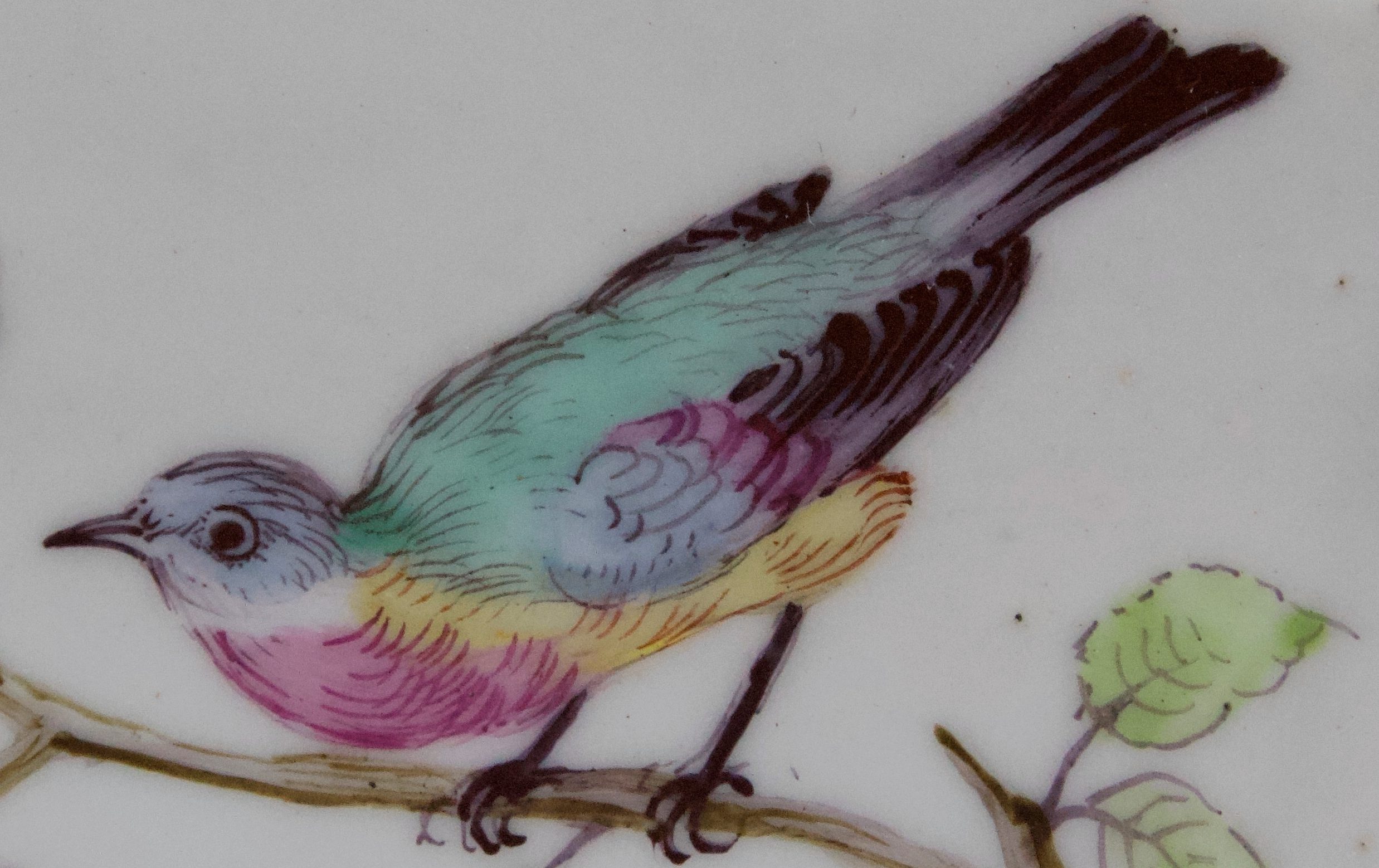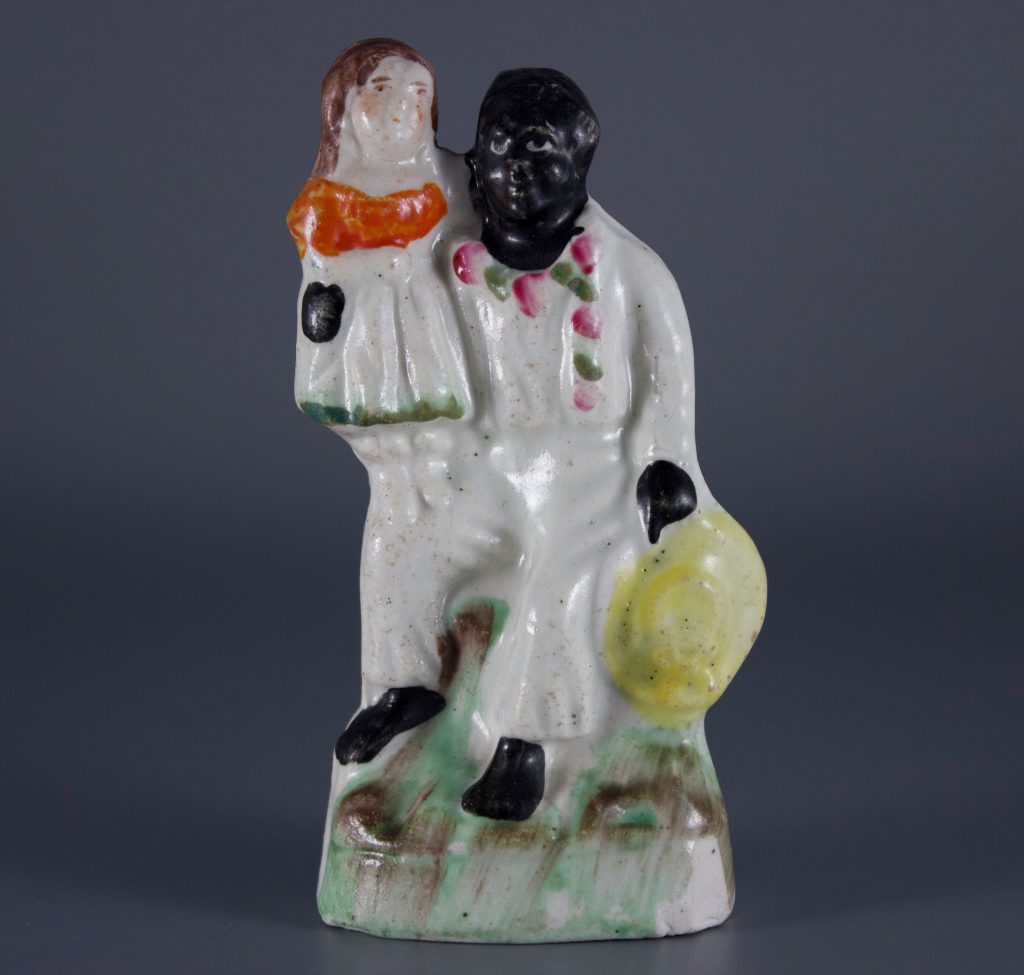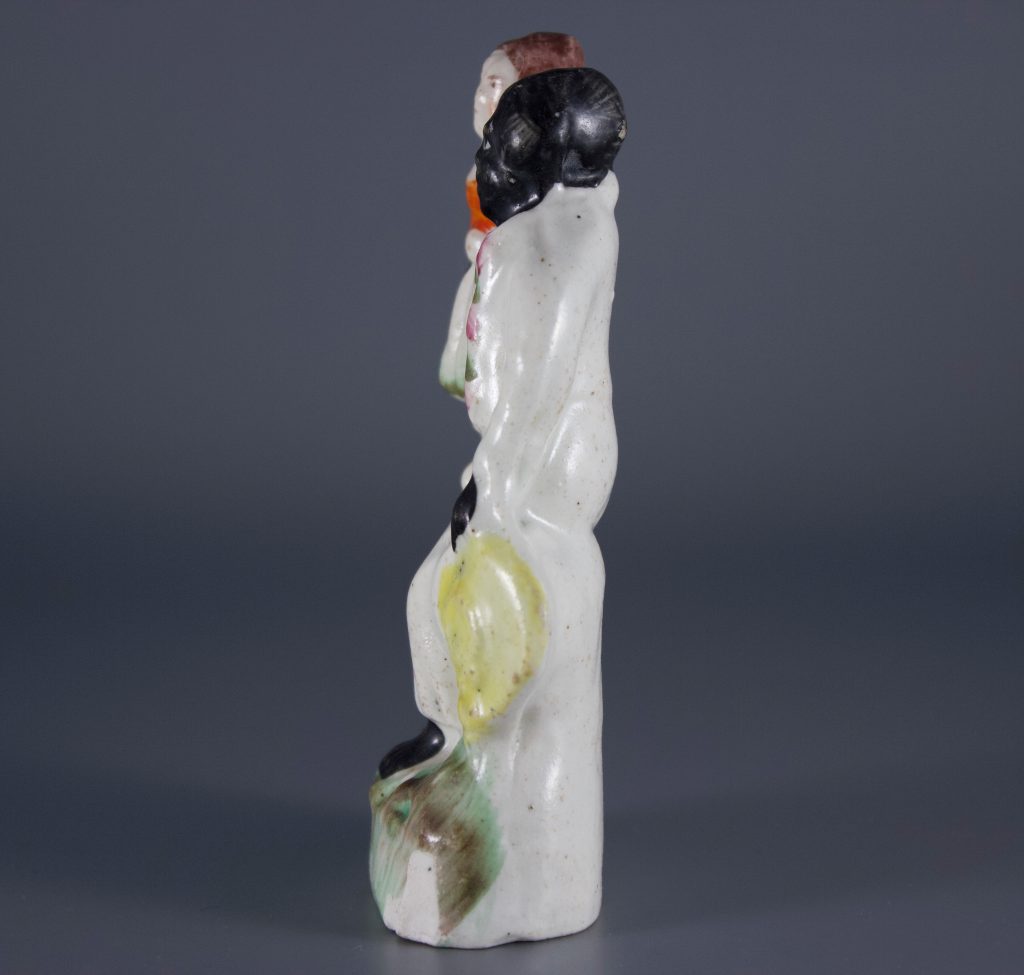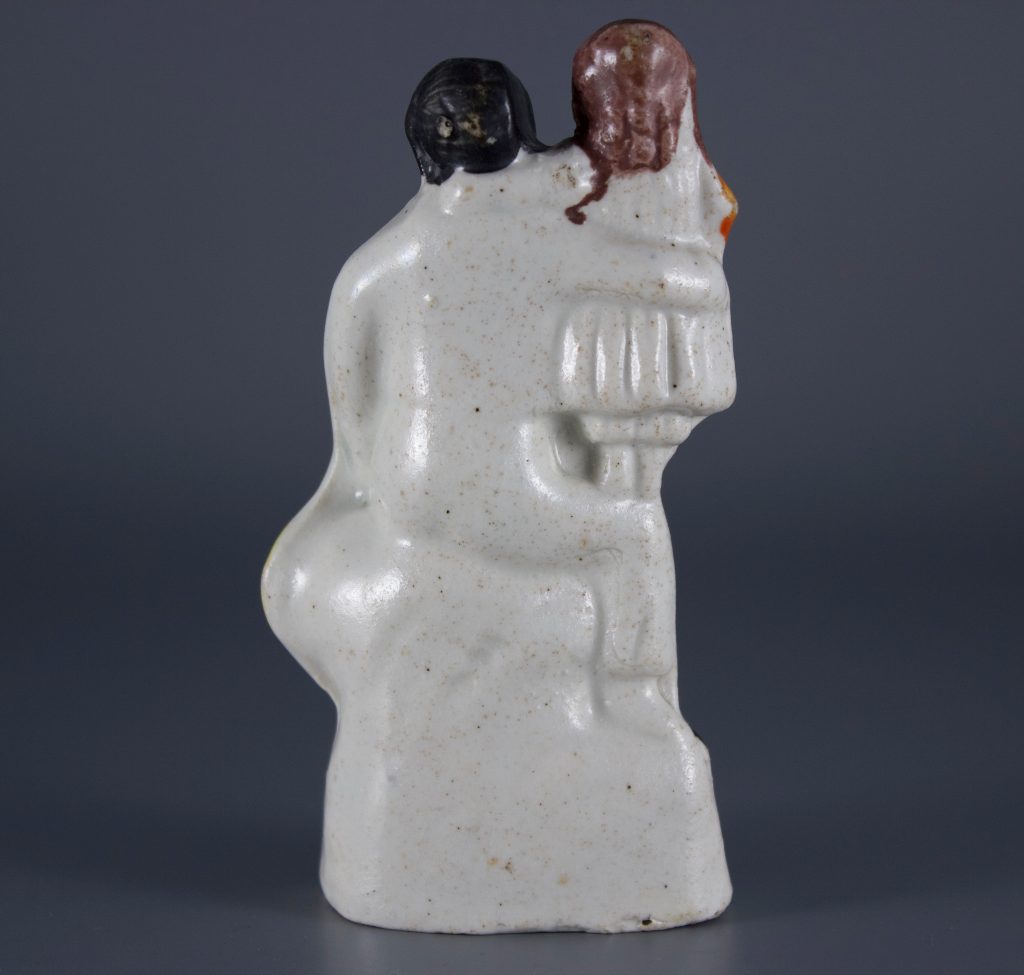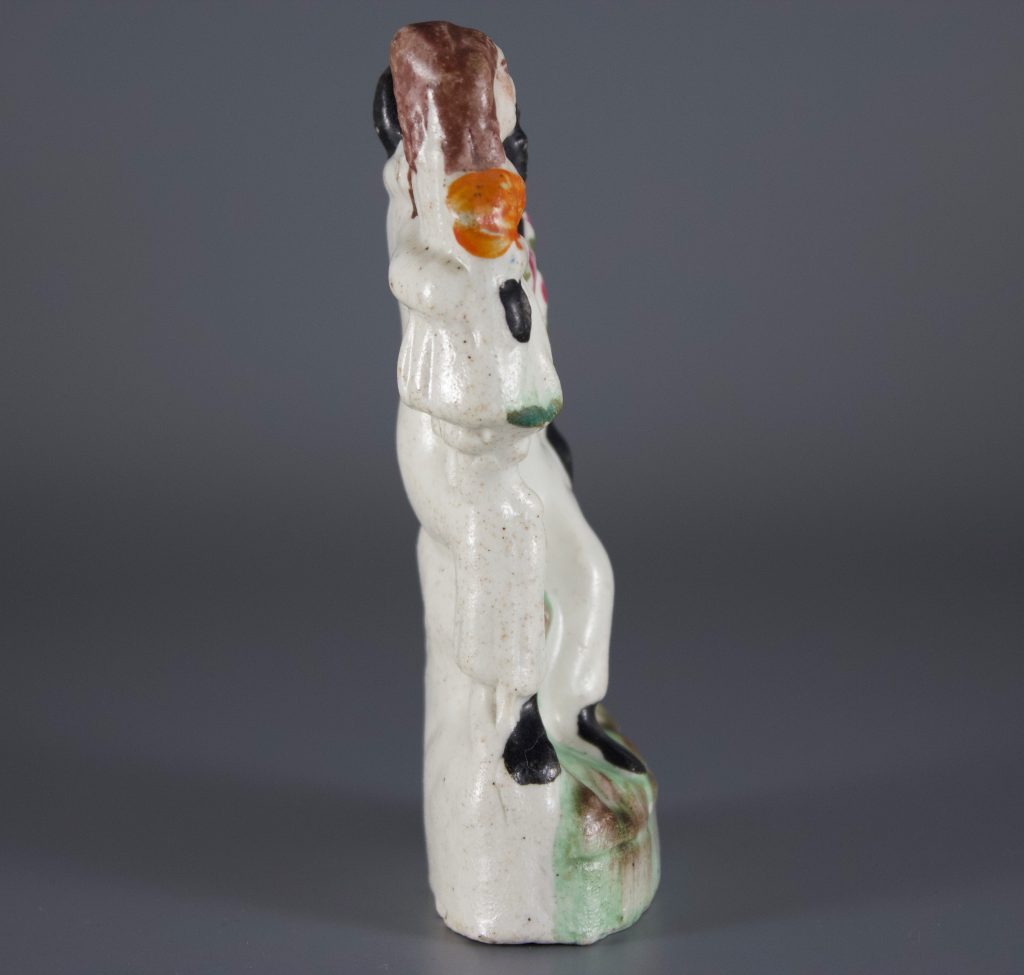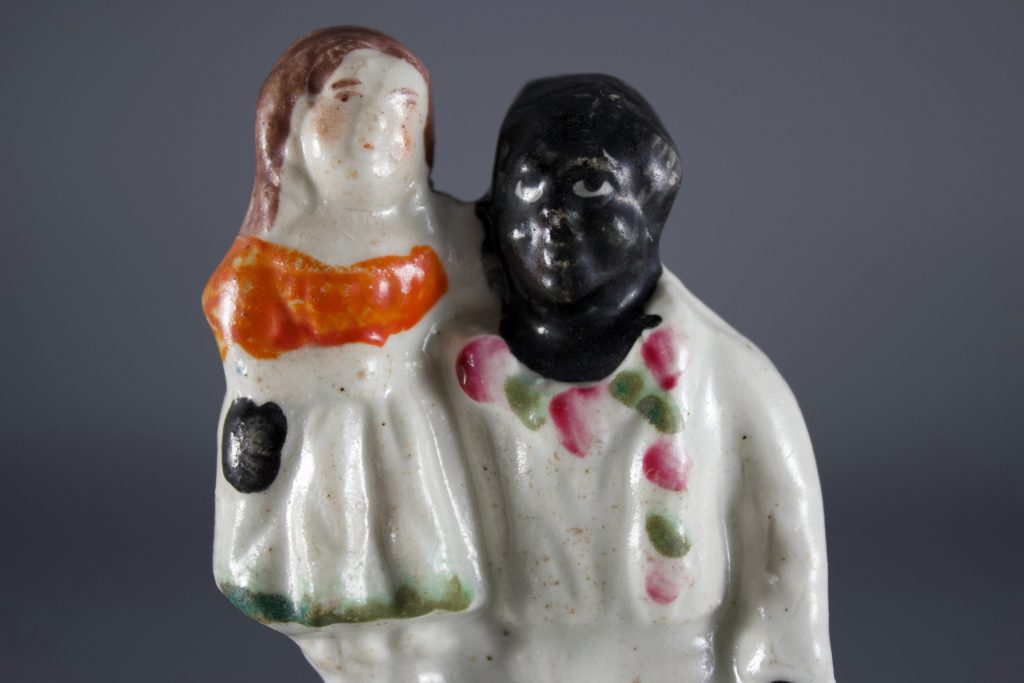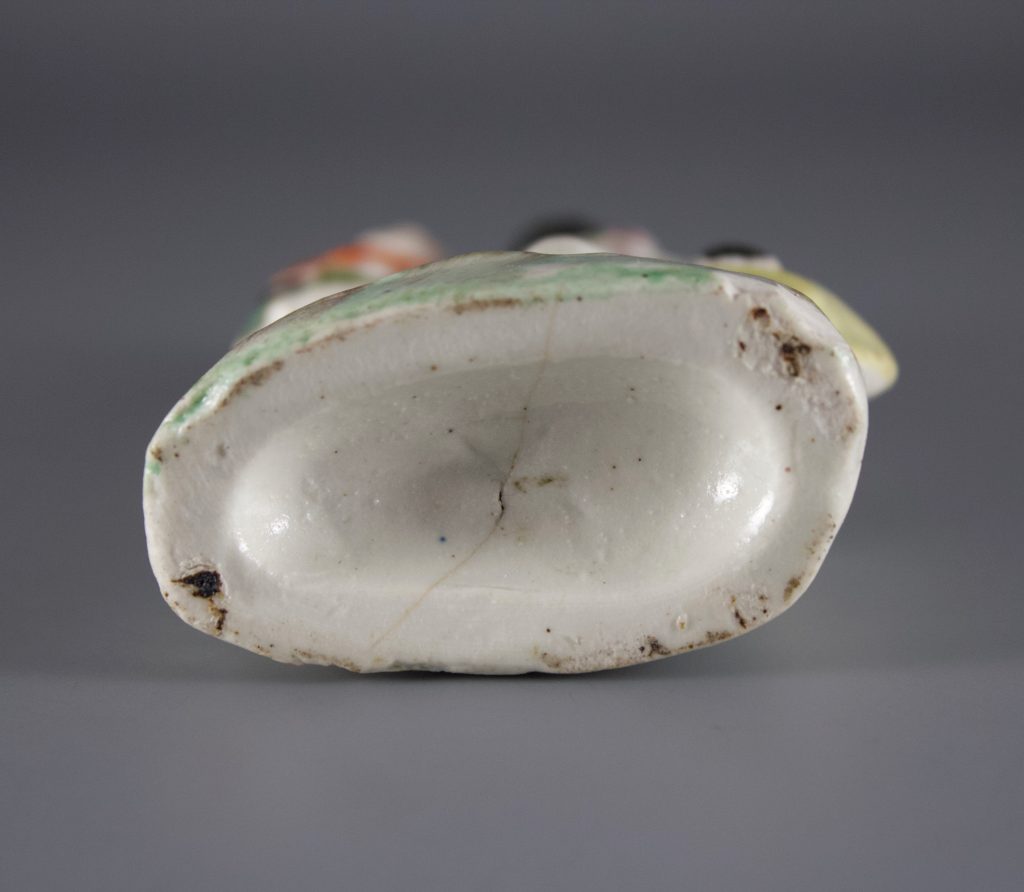A small Staffordshire flatback depicting Uncle Tom and Eva, circa 1852
This small porcelaneous figure group represents Uncle Tom and Eva, two characters from the anti-slavery novel Uncle Tom’s Cabin, by the American author and abolitionist, Harriet Beecher Stowe (1811-96). The novel focuses on the tale of Uncle Tom, an enslaved African American man. Eva is a white girl whom he rescues from drowning then is employed on her family’s plantation. It first appeared in 1851 as a 40-week serial in the American abolitionist periodical The National Era. The best-selling book of the 19th century, it is regarded as a driving force behind America’s anti-slavery movement. For many, it also contributed to the negative stereotyping of black people, particularly as Tom passively accepts his fate.
In 1852, the novel was published in two-volumes and this figure would have been produced in Staffordshire shortly thereafter. Tom is seated, holding his hat in his left hand. Eva stands on his right leg, supported by Tom, and there is a garland around his neck. The small size and porcelaneous nature make this Staffordshire flatback rather unusual.
Condition: There is a flat chip to the front corner of the base, and an extended firing crack to the concave underside. No restoration. The colouring is very simple, with only minor wear and possible retouching to the hem of Eva’s skirt. From manufacture, there are clay tears, misfiring and glaze imperfections, as well as tiny kiln touches, including to the back of Tom’s head and Eva’s left arm. Also from manufacture, the bluish glaze has pooled in places, collecting small patches of kiln dust and grit.
Dimensions: Height 12 cm; Width (across the base) 5.8 cm; Depth (across the base) 3.3 cm
Staffordshire Portrait Figures of the Victorian Era, P.D. Gordon Pugh (Antique Collectors’ Club, 1988).
